

Big smiles for another successful BAFE International Conference
The Business, Accounting, Finance, and Economics (BAFE) International Conference 2023 returned with another success, on 25 October 2023 at UTAR Kampar Campus and via ZOOM, organised by Faculty of Business and Finance (FBF); Centre for Accounting, Banking and Finance; Centre for Business and Management; Centre for Economic Studies; and Centre for Learning and Teaching.
The conference was supported by co-organisers, namely Manuel S.Enverga University Foundation, Philippines; University of Batangas, Philippines; Plekhanov Russian University of Economics, Russia; Jiangxi University of Finance and Economics, China; South China Agricultural University, China; Universitas Sebelas Maret, Indonesia; and Anhui Normal University, China.
From left: Dr Lin Bing from Shandong Foreign Trade Vocational College, Dr Liu Shuli from Auhui Normal University, Dr Tan, Dr Au Yong, Dr Fei Xu from Anhui Normal University, FBF Deputy Dean & BAFE Chairperson Associate Professor Dr Choong Yuen Onn, FBF Head of Department of Entrepreneurship and Supply Chain Management Dr Ng Yin Kuan

Dr Au Yong thanking speakers and presenters for their inputs
The 11th conference kick-started with an opening ceremony, officiated by FBF Dean Assoc Prof Dr Au Yong Hui Nee, representing UTAR President Ir Prof Dato’ Dr Ewe Hong Tat. She said, “The success of bringing together researchers and scholars to present latest works, exchange ideas, and discuss on critical research issues, which we believe will contribute to new theoretical, methodological, and empirical knowledge, reflects the strong partnership between UTAR and our co-organisers. My gratitude also extends to the UTAR team for providing this platform of sharing and learning among researchers, to produce solutions that will benefit the society.”
Dr Au Yong added, “This fruitful partnership also provides us the opportunity to promote research development, linkages, and knowledge mobilisation among disciplines and across institutions, sectors, and regions, as well as, to facilitate the exchange of ideas and information on critical research issues among scholars and researchers. I believe the inputs from all these papers will enable us to further explore strategies, technologies, and best practices that enable businesses to leverage the strengths of both physical and digital business realities. Discussions that will ensue will also become a gateway for participants to unlock knowledge on integrating e-commerce with physical retail, optimizing supply chains through digital tools, adapting to remote work while preserving team dynamics, marketing physical products in the virtual world, addressing cybersecurity challenges, and harnessing technologies like augmented reality and artificial intelligence to enhance both virtual and physical customer experiences.”
Themed Synergising Virtual and Physical Business Realities in the New Digital Era, the conference saw keynote speakers Associate Professor Dr Tan Wee Liang, from Singapore Management University, Singapore; and Associate Professor Dr Hajah Fadilah binti Hj Puteh, from Universiti Tecknologi Mara, Malaysia, sharing their insights on ways to harmonise these two forms of operating the businesses in this modern age.

Dr Tan explaining the impacts of digitalisation on businesses
Dr Tan spoke on “Bridging the 'Digital Divide' within Enterprises”. He enlightened participants on the concept of piecemeal, whereby changes in organisations are done in partial measures over a period of time. He explained, “This approach is adopted because organisations are waiting and evaluating the outcome, as they do not see the value as yet. It also helps them by having to spend less money, and not needing to train people. Other reason for using this approach is due to the organisations thinking that things are evolving too rapidly and are getting complicated.”
He then pointed out that e-commerce; enterprise resource planning; virtual worlds; platforms; systems; interconnectivity; interoperability; and digital twins are developing very quickly. He elucidated, “The mindset we have affects our acceptance and tolerance towards change. We dislike change, and yet, we love change, for instance, a change of scene, or a change in the menu. The difference here is the effort, and if we understand the purpose of the change, then it makes for drive and effort. So, we go back to the business fundamentals, whereby the organisations should outline changes that should be introduced, degree of digitalisation, and the infrastructure needed.”
The Singapore Management University academic also emphasised that there is a need for organisations to conduct continual strategic review. “There is a regular need to reconsider the business - the aim, the purpose, the function, changes that needs to be implemented, operational strategies, and stakeholders’ interests. Businesses need to remember the fundamentals when considering digital. The technology is not to be the focus; it still has to be the business. So, to bridge the digital divide, businesses need to think of the 5 Ws, and 1 H,” advised Dr Tan.

Dr Hajah describing business strategies to synergise physical and virtual business realities
Dr Hajah presented on “Synergising Virtual and Physical Business Realities in the Digital Era” via ZOOM. She started on the convergence of physical and virtual realities and pointed out, “The distinction between the physical and virtual realms has faded into obscurity. Digital technology has integrated itself seamlessly into our daily lives, and deeply impacted business operations. Fortunately, there are opportunities, as globalisation has made the world a level playing field, where businesses from anywhere can compete. This concept resonates in the digital age, where geography or location is no longer the primary factor for determining success. The internet and advanced communication have made it possible for businesses to operate globally, transcending borders and time zones. However, businesses should also be aware of the challenges, such as security, privacy, and data management.”
In adapting business strategies to synergising physical and virtual business realities in the post Covid-19 digital era, she advised that businesses should (1) embrace e-commerce integration with innovation and technology; (2) facilitate telecommuting, flexibility, and remote work; (3) invest in virtual reality and augmented reality; (4) invest in data driven; (5) prioritise cybersecurity and data protection; and (6) foster a culture of adaptability.
She then concluded, “The new digital era demands the interconnectedness between physical and virtual dimensions. It is not merely an option, but a necessity for survival and growth. Businesses must adapt, innovate, and seek strategies to balance between virtual and physical realms. Business strategies and policies must be synergised. Policy makers must provide enabling environment through thoughtful and supportive policies.”
Other enlightening sessions were conducted at the parallel sessions. The first parallel session explored Technology Integration in Diverse Industries: Challenges and Opportunities; Finance and Banking; Food Security, Digital and the Gig Economy; and Recent Issues in Business and Economics. The researches and presenters are as listed in the PDF.
The second parallel session discussed Employee Wellbeing, Leadership, and Consumer Behaviour in Diverse Contexts; Financial Portfolio and Financial Performance; and Sustainable Education. The researches and presenters are as listed in the PDF.




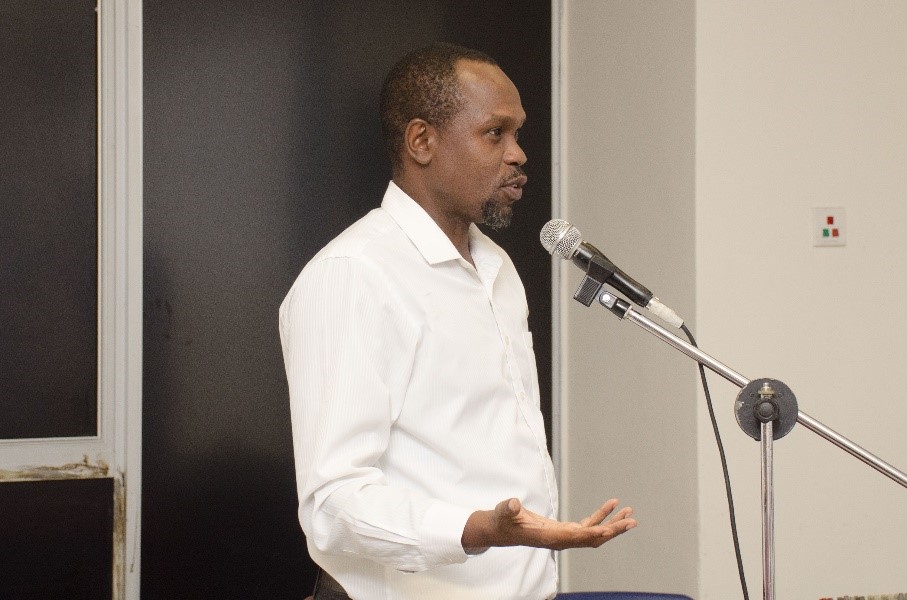
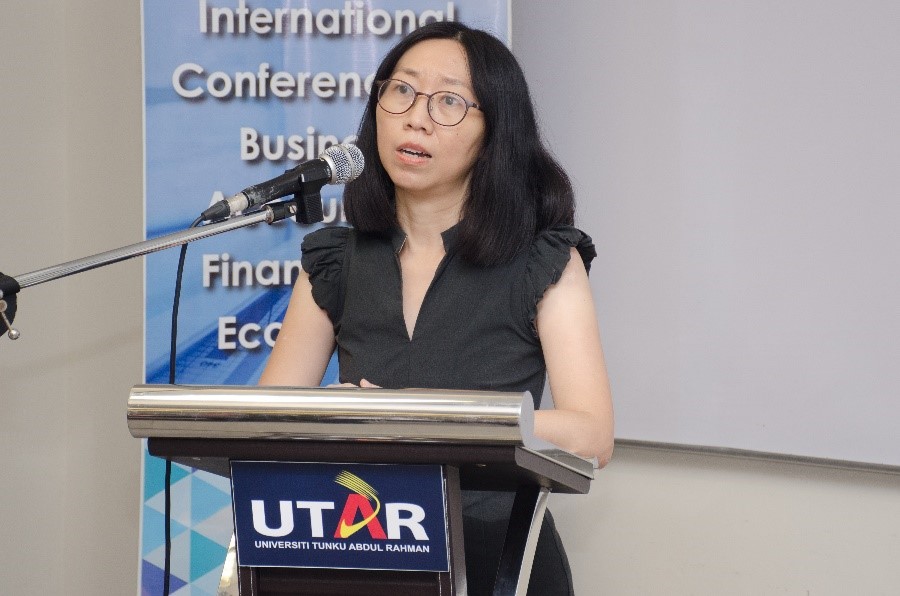


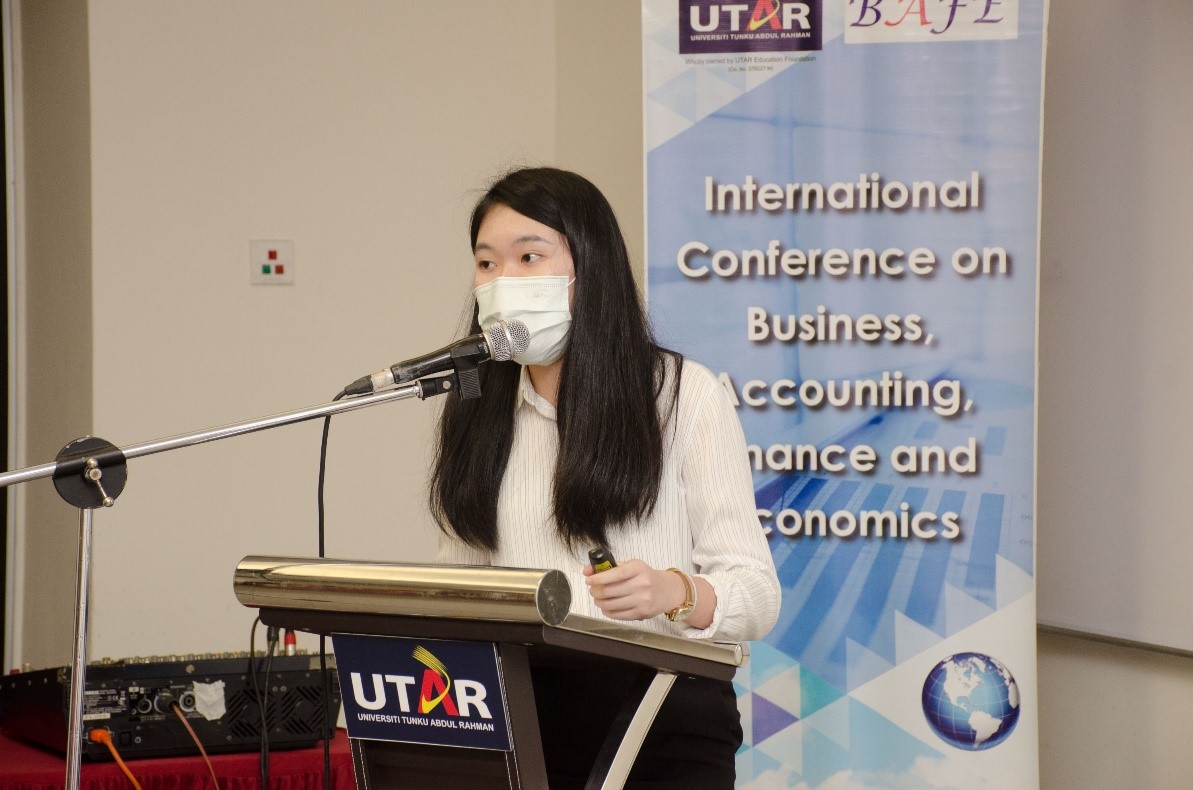
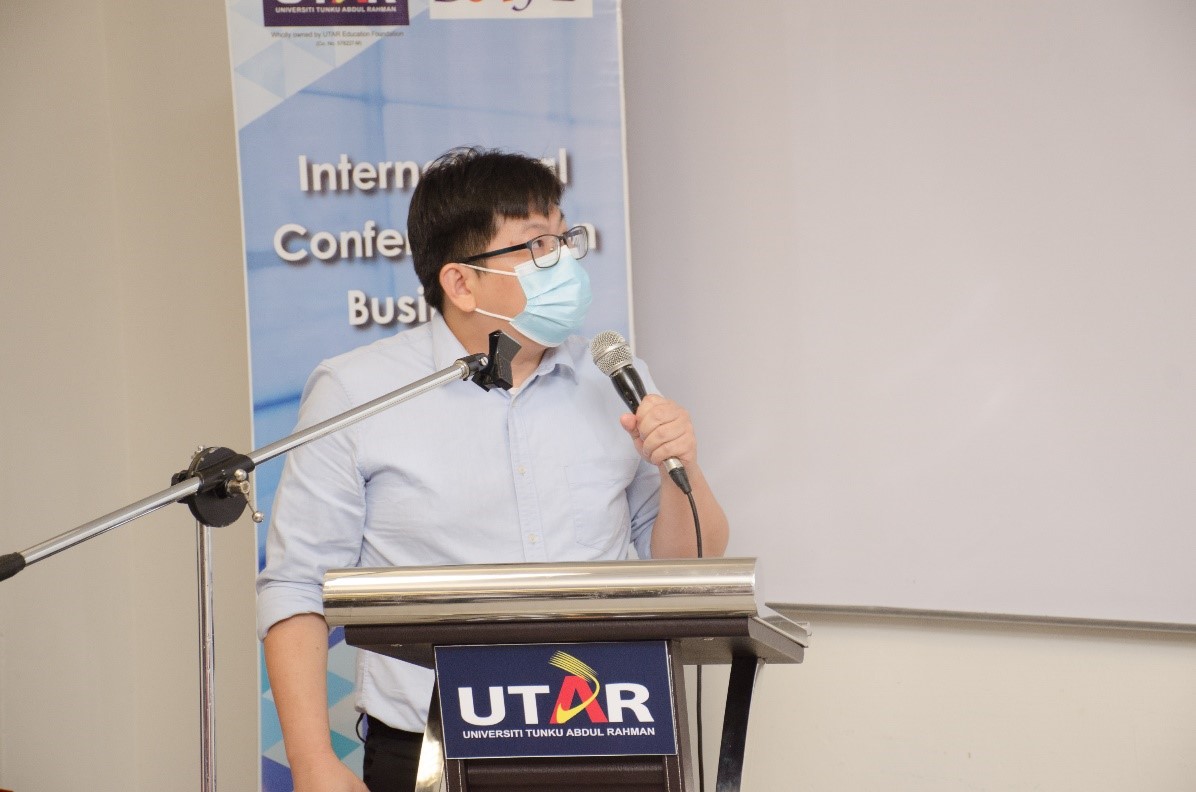
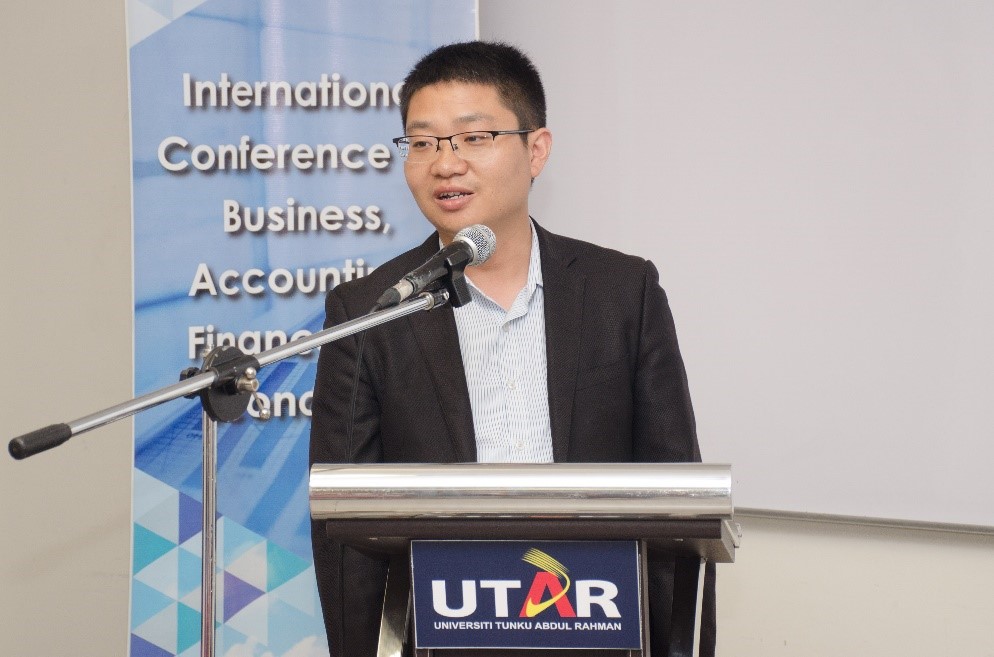

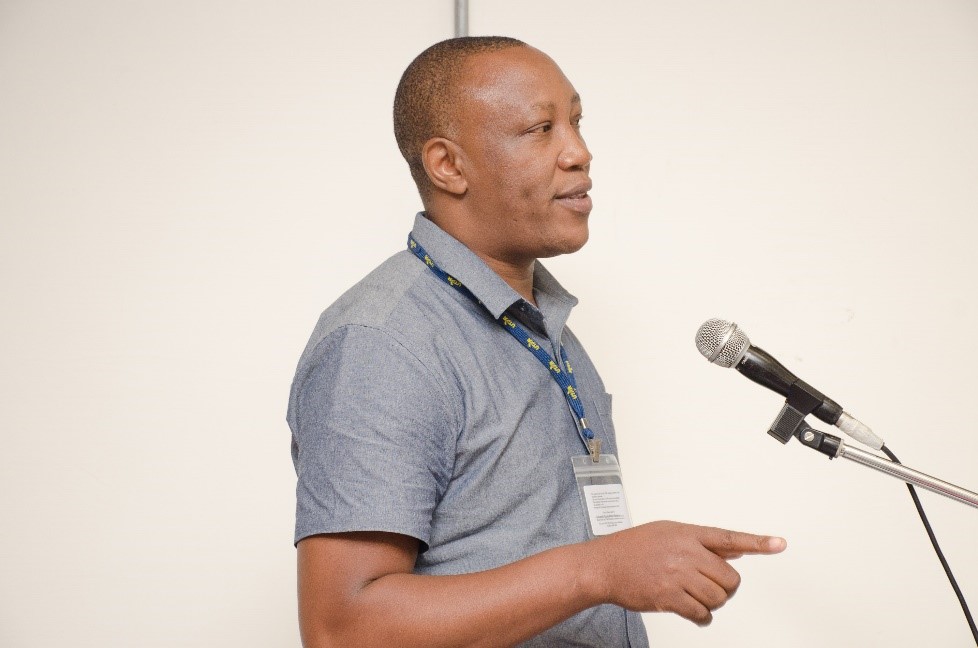
Some of the presenters sharing their research findings at the physical parallel session
© 2023 UNIVERSITI TUNKU ABDUL RAHMAN DU012(A).
Wholly owned by UTAR Education Foundation (200201010564(578227-M)) LEGAL STATEMENT TERM OF USAGE PRIVACY NOTICE